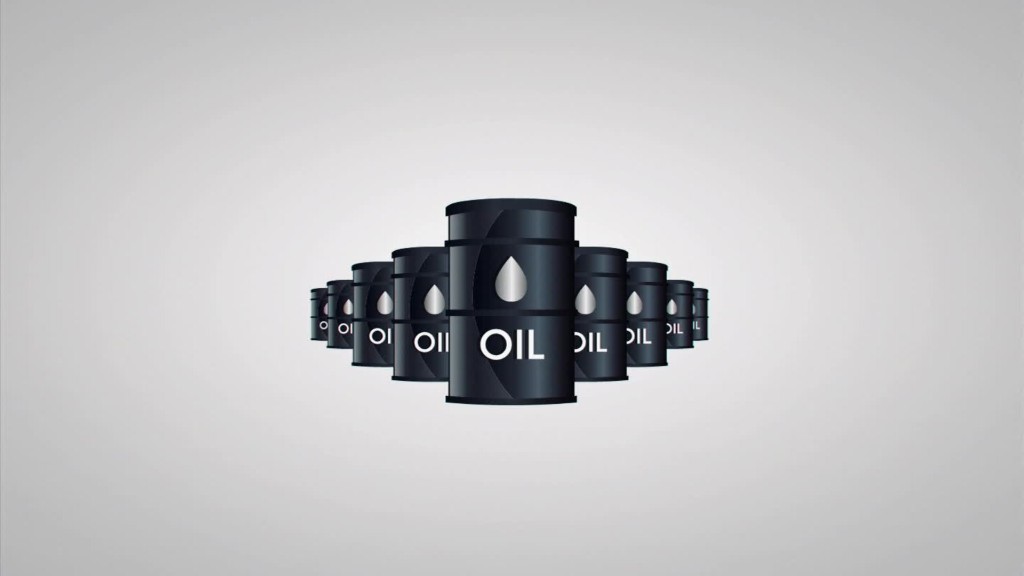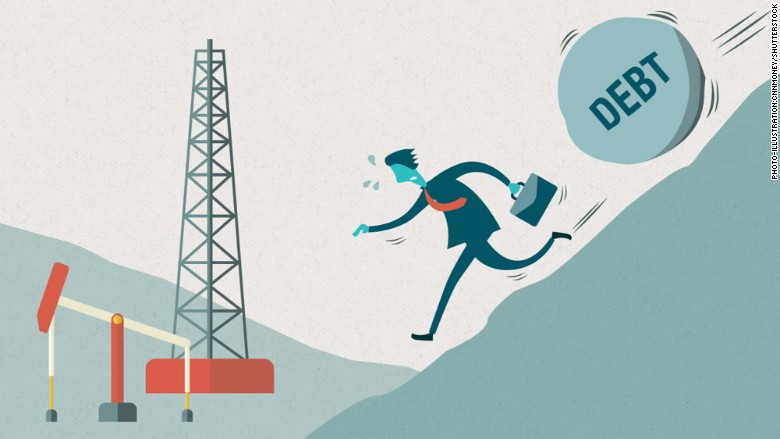
The U.S. shale oil boom lured tons of prospectors in recent years.
Oil companies of all hues loaded up on massive amounts of debt to fund rigs and fancy new drilling equipment.
The problem is the companies were banking on oil prices closer to $100 oil when they took on the debt. Now oil is around $45 and no one is expecting prices to hit $100 any time soon.
What that means is the likelihood of unpaid debt has gone up for many companies.
"Energy has been really treacherous. There are going to be a lot of defaults," R. Matthew Freund, chief investment officer of USAA Investments, told CNNMoney.
Related: Some oil companies need to die
It's a dramatic change from just a few years ago. The roaring junk bond market and low interest rates broadly helped fuel the U.S. energy boom. Cheap credit allowed companies to invest in new technologies like hydraulic fracking that makes it easier to drill oil in difficult to reach places.
Back then many companies with "limited operating history" and business models that "made no rational sense" were able to tap the bond markets for funding, said Freund.
But lately, there's been a spike in credit costs for risky oil companies despite the fact that crude prices have stopped tumbling and have somewhat stabilized in the $40-$50 range.
"That's a warning signal. Something bad is happening," billionaire investor Jeffrey Gundlach, founder of elite fixed-income firm DoubleLine Capital, said on Thursday at ETF.com's Fixed Income Conference.

Related: Wall Street firms that bankrolled oil boom are hurting
Gundlach said that levels of domestic crude oil inventories remain elevated despite a slowdown in U.S. production. It suggests the supply glut that caused prices to crash hasn't been fixed yet.
Gundlach said he is steering clear of energy junk bonds, a previously-booming area of the fixed-income market. In fact, he's telling clients to avoid the high-yield bond space altogether.
"Junk bonds should be sold on strength," he said.
Even those who believe oil prices are going up sound negative about the energy sector.
Oil would go up because "you have crazy people in control of that market," said Tim Gramatovich, co-founder of Peritus Asset Management. He indicated he was referring to Vladimir Putin and Russia's role as one of the world's largest energy producers.
Related: Chinese company buying Texas oil fields
But Gramatovich believes there are "tons of value traps" in shale oil projects right now.
"Stay away from tight oil and some of these Bakken areas where you have distressed prices. You're going to end up with dry rocks in North Dakota. It's not a good asset," he said.


